It was the “Wizard of Oz” in digital format as the four titans of Big Tech testified via video before the House Antitrust Subcommittee. Just like in the movie, what the subcommittee saw was controlled by a force hidden from view. The wizard in this case—the reason these four companies are so powerful—is the math that takes our private information and turns it into their corporate asset.
The hearing was the next step in the subcommittee’s year-long investigation of Big Tech’s effect on a competitive market and the effectiveness of America’s antitrust laws. The witnesses, subcommittee chairman David Cicilline (D-RI) said, were “gatekeepers to the economy…[with] the power to pick winners and losers, shake down small businesses and enrich themselves while choking off competitors.”
During nearly six hours of testimony the CEOs of Facebook, Amazon, Apple, and Alphabet (Google) dealt with a litany of diverse topics. Republicans saw an opportunity to work the referees and complain about alleged bias by social media. The subcommittee’s Democratic majority, however, was clearly prepared. The CEOs were forced to defend practices as diverse as their relationship with China, their acquisitions of other companies, and the myth that they protect consumer privacy.
This was a hearing to explore antitrust policies, and as such, it focused on the effects of the companies’ market power. Left mostly unaddressed—and remaining behind the curtain—was the source of that power. That source is the collection and hoarding of the digital data that fuels the software algorithms that deliver the companies’ services. It is the 21st century equivalent of Rockefeller’s 20th century monopoly over oil.
Except that the data asset is far more valuable than industrial assets such as oil. As a result, the monopolistic control of data is even more onerous than industrial monopolies such as Rockefeller’s. Unlike industrial assets such as oil, data is reusable. Data is also iterative, as its use in a product creates new data. Additionally, data is non-rivalrous, in that its use by one party does not preclude its use by another.
The internet platform barons assembled at the hearing are, as a result of the nature of the asset they monopolize, infinitely more powerful that Rockefeller, Carnegie, Morgan or the industrial barons of the early 20th century. It is all about the math that is hiding behind the curtain.
The math machines—computer algorithms—become more valuable and more precise as they are fed more data. Whoever controls that data, therefore, controls the market. Mark Zuckerberg, for instance, was able to take on the reigning social media service Myspace only 15 years ago, because the use of social media data to target advertising was in its infancy. Today, even if an startup had a better product, the new company’s ability to sell advertising would be constrained by the amount of data Facebook collects from a user base of almost one-third of the people on the planet and the precision that data provides.
And the data that Big Tech holds in their computers is locked away behind the wizard’s curtain, unavailable to innovators and the potential of new competition.
But not all data—thank goodness—is hoarded like Big Tech does. If scientific data were hidden away like Big Tech hoards consumer data, the COVID-19 crisis would be much worse. Sharing data and working collaboratively across an ecosystem has been a major reason why scientists have been able to ramp up vaccine efforts. Called “Deep Tech,” the open availability of data about coronavirus has allowed a combination of universities and startups to search for solutions. On January 7 China published the COVID genome; a month later, Moderna had the first candidate vaccine; by March 16 the first test dose had been administered—all because of access to the necessary data.
The same holds true for artificial intelligence (AI). While the Big Tech companies are developing their own AI algorithms, their fiduciary responsibilities focus the effort on the needs of the company and shareholders, not necessarily the expansion of knowledge. Yet, since AI is nothing more than algorithms sifting through vast amounts of data to reach a conclusion, the United States’ success in the international race to develop AI would be greatly aided if the vast amounts of data hoarded by Big Tech were shared with “Little Tech” companies pursuing their own innovative ideas.
Chairman Cicilline and his subcommittee are to be commended for their antitrust investigation and the important public hearing. The subcommittee has promised a report with recommendations in August. It will be an important step towards bringing antitrust law into the digital reality of the 21st century. It is not an end in-and-of-itself, however; it is also time for the federal government to pull back the curtain and investigate the abusive hoarding of the consumer’s personal information and its effect on a competitive market.
Amazon, Apple, Facebook, and Google are general, unrestricted donors to the Brookings Institution. The findings, interpretations, and conclusions posted in this piece are solely those of the author and not influenced by any donation.
The Brookings Institution is committed to quality, independence, and impact.
We are supported by a diverse array of funders. In line with our values and policies, each Brookings publication represents the sole views of its author(s).
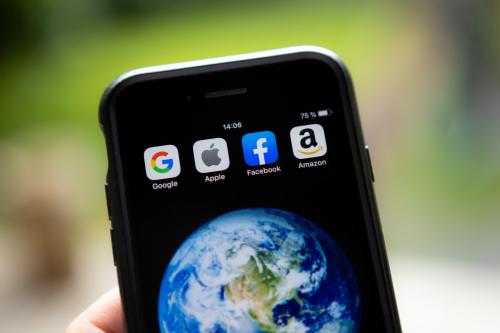

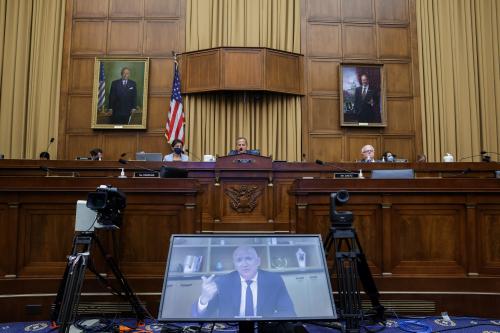
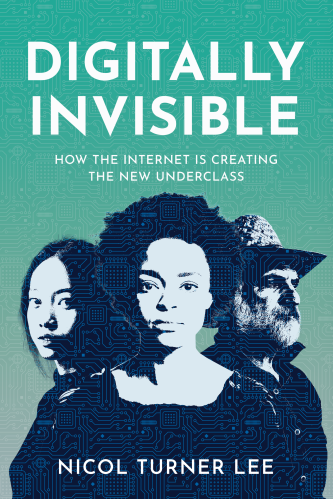
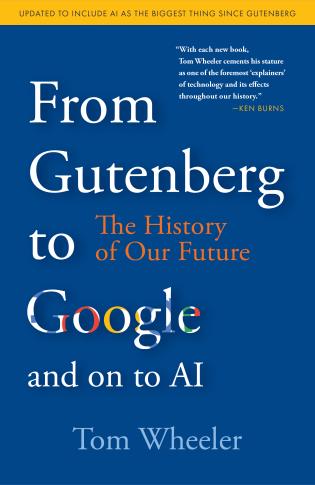
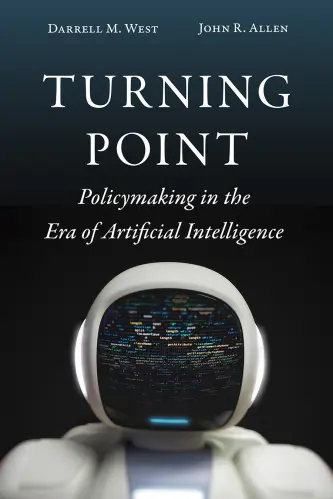




Commentary
Big Tech and antitrust: Pay attention to the math behind the curtain
July 31, 2020